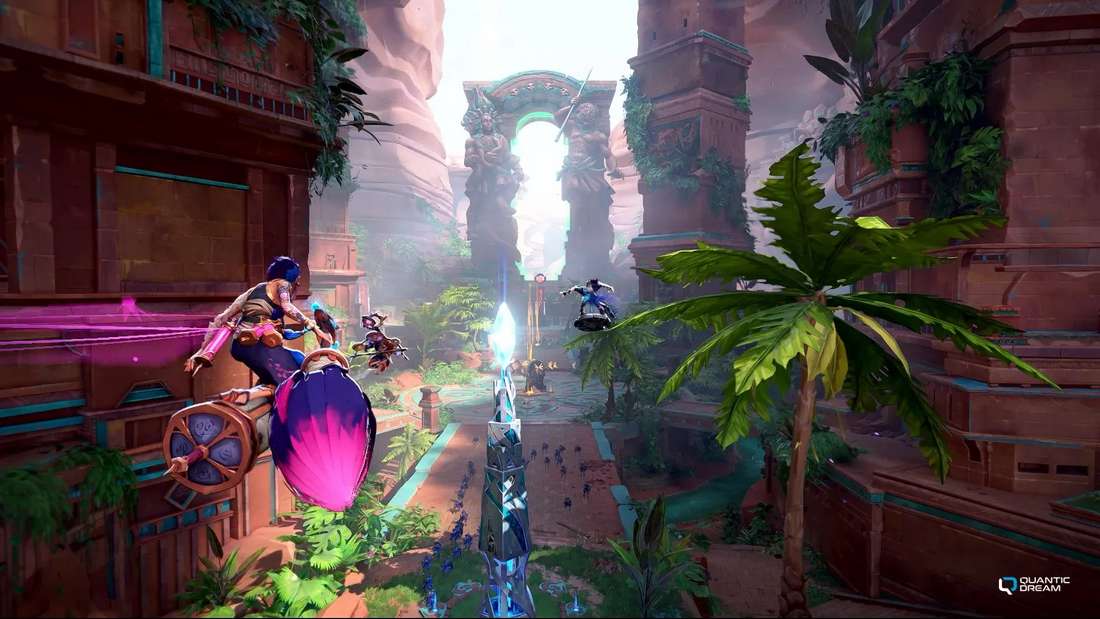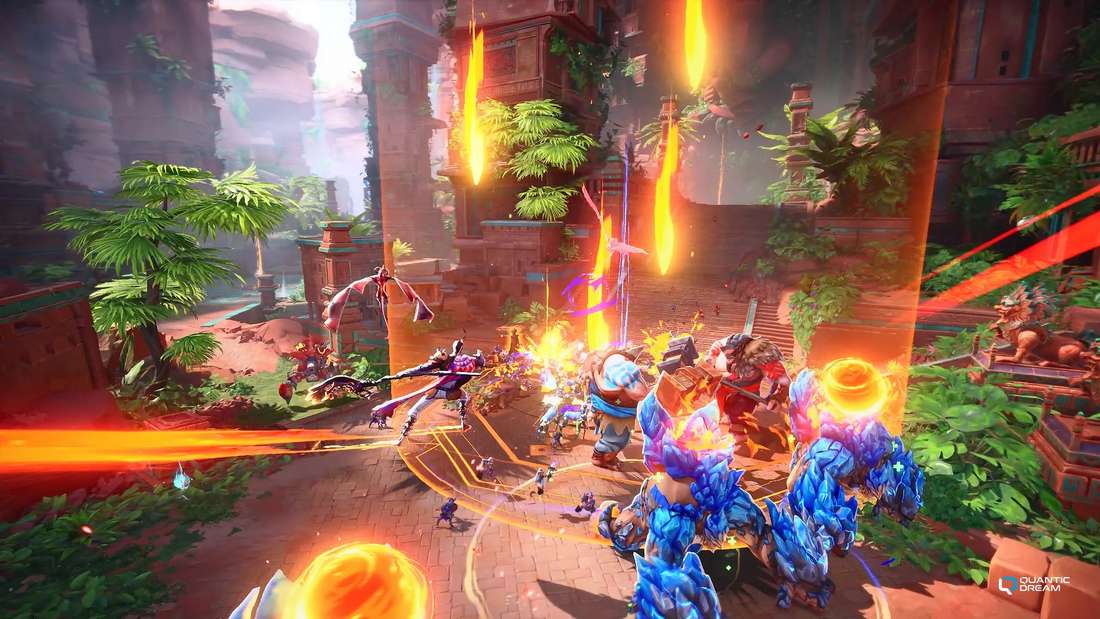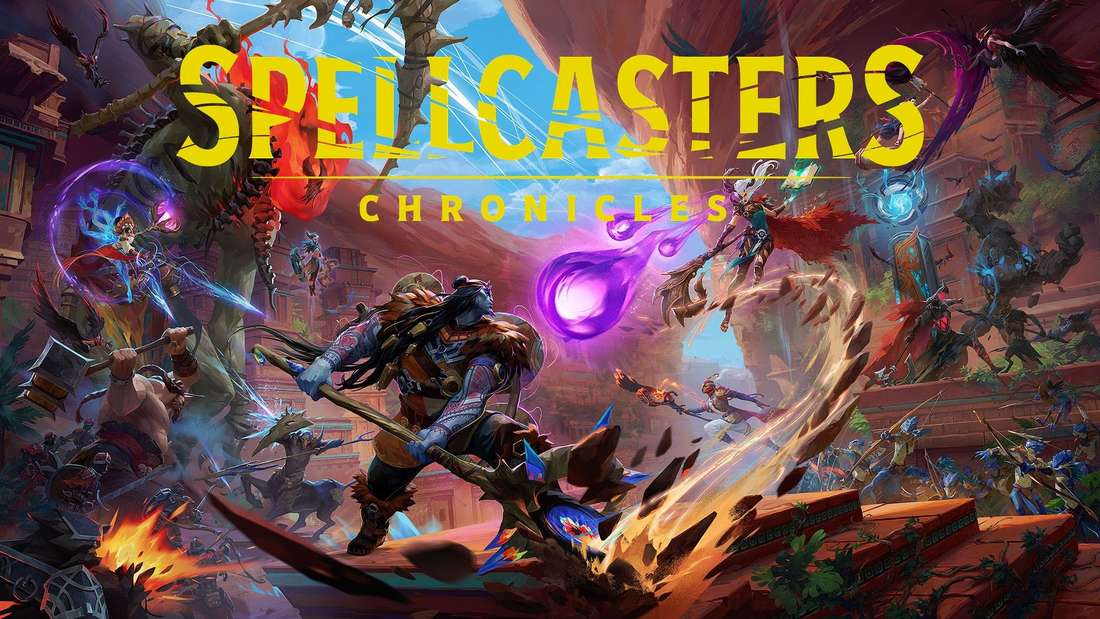Quantic Dream Breaks Mold with ‘Spellcasters Chronicles’: A Deep Dive into the Studio’s First Competitive Multiplayer Title
Popular Now
 Among Us
Among Us
 Roblox
Roblox
 PUBG Mobile
PUBG Mobile
 Rust
Rust
 Brawl Stars
Brawl Stars
 Counter-Strike 2
Counter-Strike 2
 Auto X Drift Racing 3
Auto X Drift Racing 3
 God of War Ragnarök
God of War Ragnarök
 Warframe
Warframe
 Call of Duty
Call of Duty
 The gaming industry is reeling from the monumental announcement from Quantic Dream, the celebrated studio behind narrative-heavy masterpieces like Heavy Rain and Detroit: Become Human. In a significant and almost unprecedented shift, the developer has officially unveiled its first-ever competitive multiplayer game: Spellcasters Chronicles. This audacious pivot from their core single-player, cinematic storytelling heritage marks a new, ambitious chapter for the studio, now operating under the umbrella of NetEase. The move is not just a change in genre; it’s a bold challenge to the established high CPC keywords in the competitive gaming market, promising a unique blend of strategic depth and action-packed wizardry.
The gaming industry is reeling from the monumental announcement from Quantic Dream, the celebrated studio behind narrative-heavy masterpieces like Heavy Rain and Detroit: Become Human. In a significant and almost unprecedented shift, the developer has officially unveiled its first-ever competitive multiplayer game: Spellcasters Chronicles. This audacious pivot from their core single-player, cinematic storytelling heritage marks a new, ambitious chapter for the studio, now operating under the umbrella of NetEase. The move is not just a change in genre; it’s a bold challenge to the established high CPC keywords in the competitive gaming market, promising a unique blend of strategic depth and action-packed wizardry.
The news, which broke on October 16, 2025, confirmed earlier speculation and was followed by a more in-depth presentation scheduled for TwitchCon San Diego. This immediate, public showcase underscores the confidence Quantic Dream has in a project that has reportedly been in development for seven years. It’s an investment not just in a new game, but in a new identity as a multi-project studio, with co-founder David Cage confirming that development on the highly-anticipated Star Wars Eclipse is still continuing at full pace.
 The Core Mechanics: Action, Strategy, and Deck-Building Synergy
The Core Mechanics: Action, Strategy, and Deck-Building Synergy
Spellcasters Chronicles is designed as a free-to-play, team-based 3v3 action strategy game. This cocktail of genres positions it in direct competition with major players in the MOBA (Multiplayer Online Battle Arena) space, but with distinct mechanics that lean heavily into real-time strategy and, surprisingly, deck-building.
- Strong 3v3 Competitive Gameplay: Matches are fast-paced, aiming for a 25-minute showdown in large, vertically-emphasized mystical arenas. The primary objective is a strategic two-pronged approach: capturing altars to gain territory and, ultimately, destroying the opponents’ Lifestones to claim victory. This dual-focus on objective control and destruction necessitates superior team coordination and tactical acumen.
- Strategic Deck-Building: A defining feature is the pre-match strategic depth offered by a deck-building system. Players, as ‘Spellcasters,’ choose from distinct archetypes—Support, Tank, or Damage Dealer—and then customize their loadout from a growing list of over 50 spells and summons. This introduces a vast layer of replayability and counter-strategy, allowing for immense creative expression in team compositions. It’s where the high CPC search terms like best free-to-play strategy games and competitive deck-builder will find their anchor.
- Third-Person Action and Aerial Movement: Unlike traditional top-down MOBAs, Spellcasters Chronicles operates in a third-person perspective, giving players direct control over the action. Furthermore, all Spellcasters possess the ability to fly freely around the map, dramatically changing the engagement dynamic by adding a crucial third dimension to flanking maneuvers and objective defense.
 Community-Driven Narrative: Quantic Dream’s Unmistakable Signature
Community-Driven Narrative: Quantic Dream’s Unmistakable Signature
Despite the stark departure from their signature narrative adventures, Quantic Dream is not abandoning storytelling. Game Director Gregorie Diaconu stated that the project still “builds on what has always driven us: giving players the power to shape stories – this time in a collective manner.”
The developers are introducing a concept of a community-driven narrative that will unfold as players experience the shared, living world of the game. While details are sparse, this promises a meta-layer of content progression unique to the competitive scene, allowing the collective actions and victories of the player base to influence the ongoing lore and future updates. This innovative integration of narrative into a MOBA format could become a significant USP (Unique Selling Point) in the crowded multiplayer game market and a powerful driver for sustained player engagement.
Implications for the Industry and Investment Value
The transition of a studio primarily known for its linear, choice-based narratives into the competitive multiplayer space is a fascinating case study in strategic diversification. This move, potentially influenced by their acquisition by Chinese tech giant NetEase, signals a desire to tap into the lucrative and globally scalable free-to-play business model.
- Monetization Model: The game is confirmed to be free-to-play, with monetization focused solely on cosmetics, including battle passes and character skins. The absence of a “pay-to-win” structure is a critical reassurance for the competitive gaming community and is essential for establishing long-term player trust.
- Studio Evolution: The announcement confirms Quantic Dream’s shift to a multi-project structure. Maintaining the development of the high-profile Star Wars Eclipse alongside a new IP in a different genre demonstrates significant resource expansion and confidence in their new multi-team operational model. This diversification hedges against the risks inherent in developing a single, large-scale narrative project.
- Investment and Market Growth: This strategic foray positions Quantic Dream to capture a slice of the immensely profitable online gaming sector. The combination of a strong third-person action loop, strategic deck-building, and a unique narrative hook makes Spellcasters Chronicles a game that should be on the radar of investors looking at emerging titles with high potential ROI (Return on Investment) in the F2P (Free-to-Play) space.
The Road Ahead: Closed Beta and Platform Launch
The immediate future for Spellcasters Chronicles involves a closed beta phase on PC (Steam) scheduled before the end of 2025. This closed test will be crucial for refining the core loop, balancing the vast array of spells and summons, and integrating community feedback—a vital step for any competitive title.
The full launch is slated for 2026, with console support and cross-play confirmed, a necessary feature for building a robust and global player base. Attendees of TwitchCon San Diego will have the first opportunity to go hands-on with the game, providing the initial, vital community impressions that will determine its early momentum.
Quantic Dream’s Spellcasters Chronicles is more than just a new game; it is a declaration of intent, a high-stakes gamble on fusing their storytelling DNA with the demanding world of competitive gaming. If they can successfully execute on the ambitious blend of third-person action, strategic MOBA elements, and deck-building depth, they could carve out a new and highly profitable niche in the digital entertainment landscape, solidifying their status as a versatile, next-generation development powerhouse.









